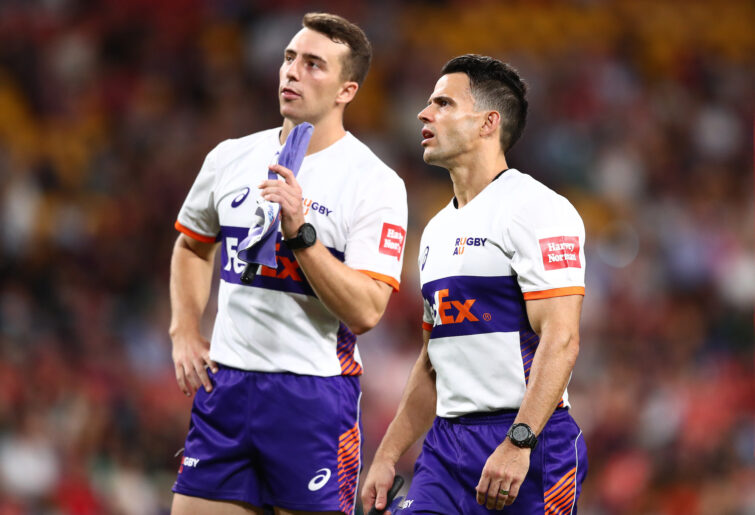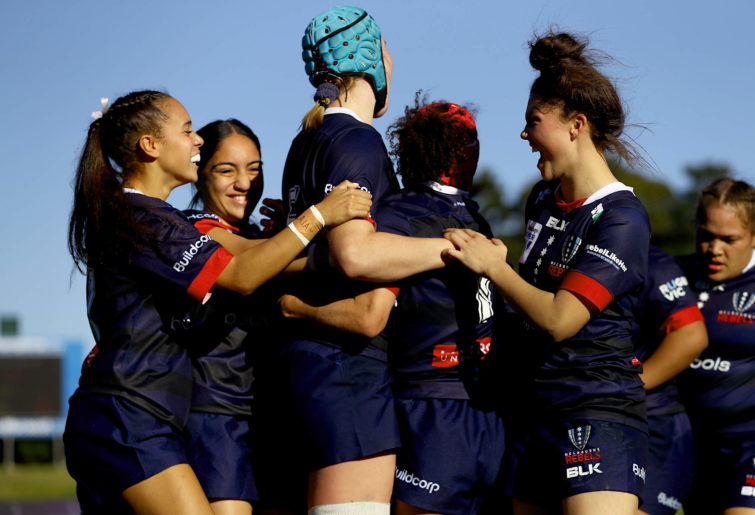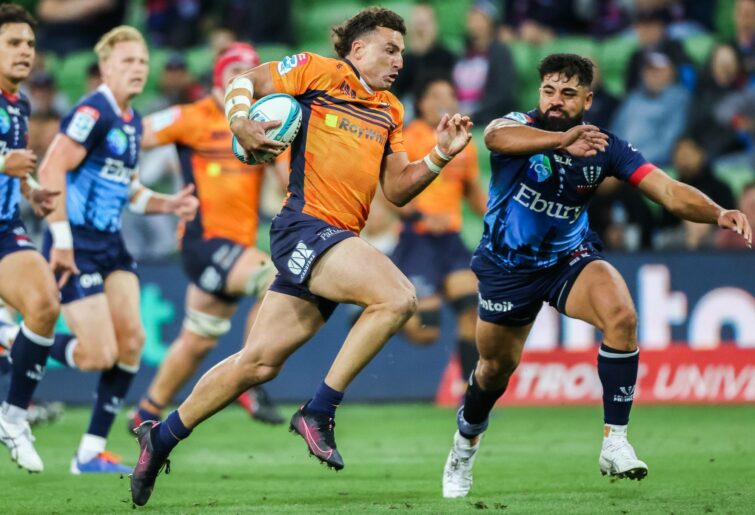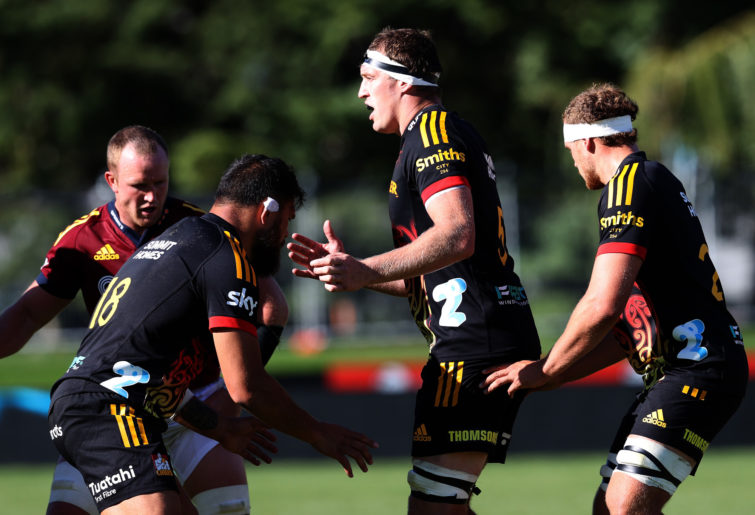In a weekend of sensations, perhaps the most eye-catching was a headline that appeared in News Corporation websites on Saturday, proclaiming “Former MacGyver hunk Richard Dean Anderson, 72, unrecognisable in new photos”.
Could this be true, I wondered? A 72-year-old man, snapped while out grocery shopping, while wearing a mask, somehow looking different than he did in his mid-30s heyday?
Well yes, evidently it was true. MacGyver does indeed look different now. In much the same way Marcia Brady and Pamela Ewing now look different. As rugby looks different, unless you’re ‘Mr Ageless’ Richard Kahui.
Ironically, one of MacGyver’s well known quotes was “The past is a strange country; you go back, it doesn’t recognise you.”
Neither it seems, are you recognised when you go forward. Rugby has changed, and for many people, frustrated by the way officials navigate their way through processes designed to ensure the safety of players, that change isn’t for the better.
For years, the three most dreaded words in rugby were, “you’re marking Jonah”. That was until “television match official” became part of rugby’s vernacular.
The 33rd minute of the Reds versus Fijian Drua match was a tour-de-force of TMO involvement, with Brett Cronan called upon to adjudicate on no fewer than three separate incidents in the one passage of play.

(Photo by Chris Hyde/Getty Images)
With two Reds and one Fijian duly dispatched, there was a mad scramble on the sideline to find enough chairs, while social media and the Stan commentary team blew up in anger and frustration at soft dismissals and how world rugby’s antiquated process was slowing up the game.
At Twickenham, after English lock Charlie Ewels received a red card in only the second minute, the clamour grew even louder. You know the script: another match ruined by the officials, over nothing more than an accidental head clash.
But are match officials and World Rugby the real villians here?
What has been hard to find, in among all of the shouting and arm waving, is a voice questioning the role of ill-disciplined players.
Ewels had no intent to take James Ryan out of the match and see him concussed. But when no attempt is made to enter the tackle zone bent at the waist, and a heavy head clash occurs, that action constitutes negligence showing no regard for the safety of his opponent.
Josh Nasser’s ‘no arm wrap’ shoulder hit wasn’t premeditated, nor was it the worst example of its type. Nor was Harry Hoopert’s, albeit his was late.
But here’s a tip: referees and TMOs can only deal with what players serve up to them. If players don’t hit with their shoulder without wrapping their arm, if they don’t hit late with their shoulder, if they don’t tip their opponents on their head in the cleanout, and if they don’t lumber into contact upright and smack their head into an unsuspecting opponent’s head, causing him a brain injury, then the game won’t be held up.
As it happened, neither the match in Brisbane or London was ruined. These are but moments in time; events in a match that can reshape and influence the contest to be sure, but that seldom prevent a willing and fair match from occurring.
If the only reason to circumvent assessment and on-field sanction of players who indulge in dangerous play is to assuage the frustrations of watchers who don’t want games bogged down by stoppages, then that’s actually not a good enough reason.
It is true that card sanctions can be blunt instruments, but player understanding of what constitutes safe and unsafe, and potential unsafe play, has improved markedly as a result of them being held accountable for their actions. And that’s as it should be.
The weekend’s rugby action started on a balmy Friday evening with the return of Super W to AAMI Park after a two-year, COVID-induced absence.

(Photo by Kelly Defina/Getty Images)
Fielding what must be close to the shortest lineout anywhere in world rugby – including the under nines – the Rebels struggled to contain the Brumbies outside backs, but had the better of the scrums, and hung in long enough to snatch a 17-17 draw with a try in the final minute.
It was highly entertaining from both sides, with skills and conditioning noticeably improved compared to the 2020 season.
With the addition of the Fijiana Drua – sparkling winners over the Reds 27-12 – there is a vibe around the competition that augurs well for the future; albeit that Australia remains a long way behind England and France in the development cycle.
In the Super Rugby Pacific match, the beleaguered Rebels started with intent, and for the first time this season played with shape.
But once their first quarter thrust was repelled, the Brumbies found their rhythm, and Rob Valetini then Tom Banks broke through flimsy defence to open up a 12-0 lead.
A brain explosion from left wing Glen Vaihu didn’t help matters, sent to the sin bin for a dangerous challenge, which opened up a paddock for Tom Wright to stroll in, and the contest was effectively over early.
The Brumbies’ second-man play troubled the Rebels all night, opening up running opportunities for Banks on the outside and inside.

(Photo by Asanka Ratnayake/Getty Images)
When good things happen out wide, it’s invariably the result of industry on the inside, and no-one impressed more than the hard-working Tom Hooper at lock, who coach Dan McKellar later singled out for his attitude and high work rate.
When you’re in a trough, any positives, no matter how small, are seized upon. The Rebels’ 70th-minute try to a busy Richard Hardwick was their best continuous passage of play all year, and will be something for the side to draw self-belief from.
The Rebels are still in a hole, but at least the hole hasn’t got any deeper.
Out-hustled and outsmarted by the Highlanders in the first half, a second-half resurgence swept the Blues to a comfortable 32-20 win in Albany.
With both sides still in the hunt for a bonus point, the match had a bizarre finish, the clock running out over 90 minutes, until Blues replacement hooker Soane Vikena mercifully put everyone out of their misery by spilling the ball forward at the tail of a lineout.
A superb final quarter from the Chiefs saw the them sweep over the top of the Crusaders in Christchurch, 24-21. In what was a thrilling finish, replacement winger Rameka Poihipi crossed for the winning try after the siren, consigning the home side to a rare home loss.
Below full strength, the Chiefs were troubled early by the Crusaders’ rapid ball movement and their own error rate. But getting great mileage out of Alex Nankivell, skipper Sam Cane, and dialled-in flyhalf Bryn Gatland, the Chiefs look like genuine contenders for the title in securing a second win.

(Photo by Phil Walter/Getty Images)
Despite being overrun, it wasn’t as if the Crusaders’ defence threw in the towel. Some days, no matter how many tackles you make – and the Crusaders made a whopping 215 at 87.5 per cent efficiency – the opposition has a day out and finds a way around you.
Both the Reds and the Drua came to Suncorp Stadium in Brisbane to play attacking rugby, and the outcome wasn’t only entertaining, but there was also an unexpectedly tense finish after the Drua came from the clouds to almost snatch a massive upset.
It had all seemed so comfortable when Josh Nasser stumbled and dummied his way in slow-mo, golden oldies style, to a popular 64th-minute try.
At 28-9 that should have been game over, but three lightning strikes from the Drua later, it was suddenly 28-28 and the impossible had become possible.
Fittingly, it was a Fijian who had the final say, the highly impressive Seru Uru crashing over from close range to regain the lead for the Reds, then climbing high to snuff out the Drua’s last-ditch attack on their line.
The Drua were left to rue a couple of match-turning moments: a superb tackle by Jordan Petaia on a flying Onisi Ratave in the 49th minute, and Vinaya Habosi being ruled held up over the line in the 35th minute, despite there being more than a strong suspicion that he had grounded the ball successfully.
In cases like this, where an unsighted referee is forced to make a definitive decision, the process is problematic.
Just because a referee’s view is obscured does not mean a try wasn’t scored, only that he didn’t see it. Forced by the process to send matters upstairs as a ‘no try’, the TMO is then required to apply a far higher level of proof if he is to award a try.
Here, there didn’t seem to be any way for a Reds defender to have got under the ball, and indeed, after the whistle was blown, and a player removed, the ball could be seen clearly placed over the line, in Habosi’s grasp. It is a shame that in all of rugby’s myriad laws, common sense and balance of probability do not apply in these instances.
Unsurprisingly, there were questions about the Reds going to their bench too early, and perhaps not playing more tightly, so as not to leave the door ajar for the Drua to storm through. But that is the Reds’ way, and no matter how many flutters and close shaves there are along the way, this side knows how to win, and win entertainingly.
It’s fair to say that the Waratahs and Force didn’t do the dry Sunday afternoon conditions justice at Leichhardt Oval, conspiring to put on an error-ridden display that was far less exciting than the close 22-17 scoreline suggests.
After going to an early 7-0 lead, the Force were particularly lethargic and ill-disciplined, and once again, questions surfaced about their inability to convert red-zone field position into points.
The Waratahs weren’t a lot better, but at least were able to keep the scoreboard ticking over, courtesy of Will Harrison’s lively return to the starting side, and Charlie Gamble’s expert pickpocketing at the breakdown.
Keep an eye on Harrison. He’s 22, but is blessed with the kind of youthful looks that suggest he’ll be one of those people who, unlike poor Richard Dean Anderson, hunted and humiliated by paparazzi for nothing more than the heinous crime of growing old, will retain their appearance into middle age and beyond.
































































































